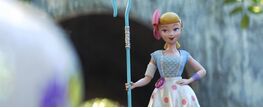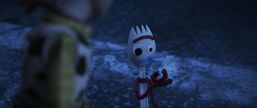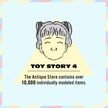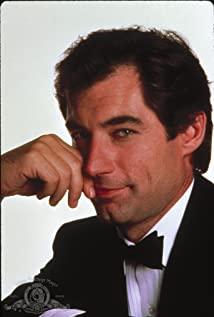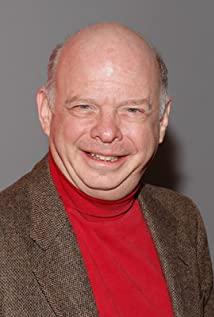I had an unprecedented dream last night.
The reason why I say "unprecedented" is because this dream is really different from most of the dreams -- chaos, eclipse, chaos -- this dream is a whole process composed of anthropomorphic cartoon characters, a group of "drink people" (heads change The world of the man who became a drinking cup), the protagonist is a different kind of person (without a straw on his head), in this world, he has an adventure and encounters trouble. At the end of the story, the protagonist is surrounded by the police. They try to Pull a backdrop behind the protagonist and put him in a 2D animation, expelling him from the 3D world he's in.
and then I woke up.
In the dream, the colors are so colorful, the imagination is so wild, and even a complete story line is developed, so that when I wake up, I can't believe it is my own dream.
I thought about why I had such a different style of dream, and the answer came out quickly - because I watched "Toy Story" yesterday
(Spoilers below)
There is a sentence in "Film History", to the effect: "Money can't promote the development of movies, creative talents." After watching "Toys 4", this is probably my greatest emotion.
After all, the fourth film has already been filmed, especially the third film is still so good. Before I watched it, I was thinking, how can the film develop after filming this?
And when the prologue just kicked off, when I saw Woody talking under the car with his lamp goddess, a panorama (versus a toy-sized panorama) cut in at just the right moment, rain, lights, and the sparse car The bottom turned into an unforgettable farewell scene, and at that moment I knew the movie would never disappoint.
In addition, I must sigh about the amazing narrative efficiency of Hollywood. For example, in the scene where Woody escaped from the store, a little girl led him out of the crisis and happily took him to the swing. I was still in a bit of trouble at the time - it stands to reason that she is a benefactor. She is so warm and lovely and she is playing with Woody. How should I leave her? How to say goodbye? Who knows that as soon as the girl turns her head and Woody swings off the screen, the swing will be empty again - very crisp, very simple: Woody is not grateful to the girl at all, the plot moves quickly, and we are attracted by Woody's agility, The benefactor's little girl NPC was left behind.
This is also a hint of Woody "leaving the master". In "Toys 4", Woody, as a "child", "parent" and "toy", has a corresponding character arc for his triple identities, and once again laments the level of the screenwriter.
When I was a child, I was more impressed with Buzz Lightyear, and I still remember the painful scene in which he jumped down the steps but broke his fantasy in the first part.
The focus of the next few films has been to rely on the role of Woody, until the fourth film is completely Woody's personal film. If the third part is to say goodbye to the master, in the fourth part, even the CP of Hu Dibas will be removed.
Fortunately, the movie is not provocative, the world of toys is always beautiful, and even the difference is not bitter.
There is such a perfect world in Toy Story:
The parents of the child are as good as textbooks, so that when the child loses the homemade toy from the garbage heap and cries, they patiently help the child to find it, instead of saying "It's just a broken spoon, don't you bother!"… …
When toys magically disappear and appear in different places, parents will never say, "You are a dead child all day long."
When Woody was left out in the cold, the psychological imbalance did not worsen at all. Out of loyalty to the previous owner, he secretly helped the child's growth...
The goddess who lost her master found the freedom and strength to live independently, as well as love...
The girl doll, who is eager to find her master, was originally the leader of the spooky puppet, but as a result, she has the same mind with Woody, turned enemies into friends, and finally found support.
——Maybe this is also the problem of "the villain is too weak" caused by being too perfect. The protagonist's problems are also too easy to solve.
Buzz's rescue as a story line did not help Woody decisively - this is my biggest dissatisfaction with "Toys 4", because it is fundamentally dismantling the CP: From the beginning of the story nine years ago, Hu What Di faces is the choice of "love" or "master", while Bass does not appear at all, and at the back of the film, Woody's adventure fades out throughout the whole process.
The help of Bass and the Toy Family in Woody's journey of self-discovery is not shown throughout the film—the Toy Family stays in the RV the whole time, hardly pushing the plot forward; Bass does go out, but he does. After only strolling around the playground, he easily escaped from the shooting shop, and easily met with Woody. When they met, there was basically no dialogue that promoted the emotional line between the two.
Only at the end, in the almost joking paragraph, the group manipulated the RV to facilitate the meeting with Woody - in fact, it was really just a meeting, and the poor parents were double frightened by the "faulty navigation haunted RV" and had to He was stopped by the police so that the toys could say goodbye in person—then this easily accomplished and noisy separation seemed to be no pity. It can be said that from the moment Woody jumped out of the car window resolutely, he was already destined to leave.
Regarding his departure, there are two places in the film that can be understood as footnotes: that is, two night conversations - just before and after the escape: after finding Cha Cha, I walked along and chatted with Cha Cha about my life, um, toys Health; another night conversation with Bass before fleeing.
It's a pity that Bass and Chacha, as supporting roles, have been simplified into simple-minded amusing, which first limited the depth of the topic, and did not even reminisce about the years with Bass. And the "loyalty" and "Inner voice" described by Woody do not seem to represent the real complexity of this character: the reluctance to part with the toy family, the changes of the old and new owners. Hidden behind the scenes are worries that don’t belong to children—the nihilistic sense of self-worth, and I even think it may be due to the screenwriter’s mid-life crisis.
It's even hard to say what test Woody has really endured: Chacha is suddenly made sense, the "Shining" corridor will soon be able to escape, the new era strongman girlfriend will appear immediately, the key is easy to get, the seemingly villain but Yinuoqianjin became good friends, and the motorcycle trapeze suddenly rose to prominence...
- and the biggest question is that these obstacles are actually the difficulties that Woody needs to face in order to complete the rescue and help the master grow up, and the choice he really faces - whether to leave the new master who no longer loves him. - not relevant.
What really pushed him to "find himself" was a chance encounter with an old lover.
Don't tell me what she stands for "self", "new life", what "free, larger world". Let me ask you, what kind of world is there when one's eyes turn from the world of toys to the "bigger world"?
A world where spring is sprouting.
Forget about friends, Woody.
However, it seems unnecessary to criticize a fairy tale.
"He/she is my kid", this line actually shows the status of the toy in this movie - the "mutual subordination" relationship with the child, which can be a parent or a playmate; Woody watched the girl's first Going to the kindergarten one day, watching her isolated, and then quietly helping her, when he looked out in the kindergarten's schoolbag cabinet, there was no doubt that it was a parent's gaze. When children look for their own toys all over the world, they are looking for a part of themselves; through the perspective of toys, the movie is restoring a child's psychological world - or, in other words, a "perfect" child's psychological world.
The toys in the stories themselves represent the purest of things—the most fundamental values and worldviews that shape and shape us as children. Parent-child-toy, these three constitute a closed loop, interpreting the inheritance process of a moral outlook and world outlook, and the virtual toy image, through this inheritance, plays the roles of children and parents at the same time.
So Woody doesn't have to be so complicated and shouldn't be so complicated, he's a perfect toy with a perfect toy grid. He accepted that he no longer belonged to the old master or the new master, but he still fulfilled his responsibilities. From this point of view, "loyalty" became the generalization of his "first half of his life", and there was no big problem. From Toy Story 1 to 4, the movie changed from a half-adult, half-child story to a fully adult story. Perhaps this is why Woody left the toy family-as an important toy to the old owner, he actually became the old owner. A projection that Woody will eventually become a lonely adult when the old master grows up.
(By the way, abandon Bass to find love)
In the dialogue with Woody, through the mouth of "Fork", the film completes the unity of the theme: whether it is children and toys, children and parents, toys and toys - the most important thing is companionship: "She is my "trash" ".
People who don't know how to accompany are the biggest villains: like the boy who rudely took away all the stationery on Bonnie's desk on her first day of kindergarten; or the "big dragon" who walks alone and mutilates the life of toys - the antique shop The cat in the movie; the owner of the shooting shop who listens to rock and roll with headphones all day and doesn't look at his children is also an object of ridicule; and the original villain was twisted due to loneliness, and after making friends with Chacha and Woody, he successfully cleaned up, and was accompanied.
However, for these "villains", the film does not focus much on, nor does it intend to really criticize; the film does not explore the hidden "chain of contempt" of "garbage" and "toys"; like all mature Hollywood films, its own The positioning is very clear: as a family-friendly film, it has a character storyline that supports the theme, and has a number of outstanding supporting roles, which is very qualified in terms of plot.
As a toy, Woody bids farewell to himself attached to the owner; as a child, bids farewell to the toys that grew up together; as a parent, bids farewell to his children. The story ends at the playground, which is indeed a good home for toys.
It's just the end of "Toys 4", which also announces the end of "Game Playmates" and the beginning of "Love Run". What will the story be like in the future?
Give Bass a chance to be the main character, don't let him be a fool, please.
View more about Toy Story 4 reviews




